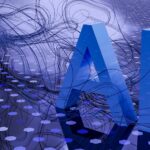Introduction
Artificial Intelligence (AI) is no longer a mere futuristic concept; it’s an ever-evolving reality that has penetrated virtually every industry. From personal assistants like Siri and Alexa to more complex systems in healthcare and finance, AI has become an integral part of our day-to-day lives. However, as we increasingly rely on these intelligent systems, it’s crucial to address the ethical considerations inherent in AI development. This blog post will delve into the ethical implications of AI, illustrating its impact with practical examples, and exploring what the future may hold.
The Ethics of AI: A New Frontier
AI ethics is a new area of study that examines the moral issues arising from the use and creation of artificial intelligence. It’s a broad field, encompassing issues like algorithmic bias, data privacy, and job displacement. As AI systems learn and make decisions autonomously, they can inadvertently perpetuate harmful biases or make decisions that impact human lives.
Consider the example of Amazon’s AI recruitment tool. The retail giant had to abandon it when they discovered that the system was biased against female applicants. The AI was trained on resumes submitted to the company over a decade, which were predominantly from men, leading the system to favor male candidates. This clear instance of algorithmic bias highlights the need for ethical considerations during AI development.
Data Privacy and AI
The development and functionality of AI heavily rely on data. AI systems learn by analyzing massive datasets and identifying patterns or correlations. However, this raises significant privacy concerns. How is data collected? Who has access to it? How is it used?
A practical example of this can be seen in the healthcare industry. AI has tremendous potential to revolutionize healthcare with personalized medicine and early detection of diseases. But, these systems require access to sensitive patient data. The misuse or unauthorized access to this data can lead to serious privacy infringements and potential harm to individuals.
Job Displacement and AI
Another ethical issue in AI development is the potential for job displacement. As AI systems become more sophisticated, there are concerns that they could replace human workers in various industries. According to a report by McKinsey, as many as 800 million global workers could be replaced by robots by 2030.
While there’s no denying the efficiency and cost-effectiveness of AI, we must also consider the social and economic consequences. Displaced workers may struggle to find new employment, especially in areas with a lack of opportunities for retraining. This highlights the need for a balanced approach to AI development, where technological advances are matched with initiatives to support affected workers.
The Future: Building Ethical AI
Despite the ethical challenges, the development of AI is not slowing down. It’s therefore crucial to incorporate ethical considerations into AI development from the start. This includes diverse representation in AI development teams, transparency in data collection and usage, and robust regulations to protect privacy and prevent misuse.
Forward-thinking companies like Google and Microsoft are already taking steps in this direction. Google’s AI Ethics Board and Microsoft’s AI and Ethics in Engineering and Research (AETHER) committee are initiatives created to ensure ethical AI practices. They aim to tackle complex issues like bias, fairness, transparency, and accountability in AI.
Conclusion
As AI continues to evolve, so too must our approach to its ethical implications. The development of AI offers immense potential benefits, but it also presents significant ethical challenges that must be addressed. By prioritizing ethical considerations in AI development, we can harness the power of AI in a way that benefits everyone and mitigates harm. For small business owners interested in AI, understanding these ethical considerations is a crucial first step in responsibly implementing AI solutions.
The journey into the realm of AI is an exciting one, full of potential and promise. However, as we advance, let’s ensure we are not just creating intelligent systems, but also building a future where technology serves humanity in ethical, fair, and transparent ways.




